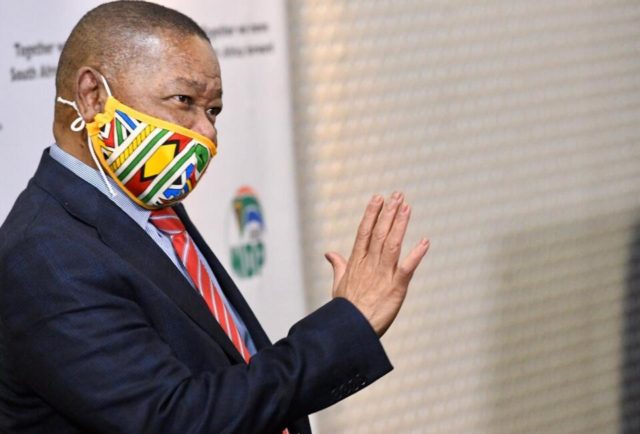High-level probe into NSFAS set to make recommendations on new model for administering financial aid
FROM now onwards, the government will start considering investments and rental income when processing applications for assistance from the National Student Financial Aid Scheme (NSFAS).
Higher Education, Science and Technology Minister Blade Nzimande announced on Saturday that students applying for the NSFAS will also have their parents or guardians’ rental and investment income taken into account to determine if they qualify for a share of the assistance of between R35 billion and R38bn annually that the NSFAS is expected to distribute until 2023.
“I am pleased to indicate that NSFAS has concluded an agreement with Sars (SA Revenue Service) to provide access to the latest tax data to validate household income of applicants,” he said.
According to Nzimande, the NSFAS will now be able to include other income streams such as investments and rental in its applications assessment, which he added will greatly assist in finalising outstanding appeals.
The measures announced on Saturday come as Nzimande launched a high-level investigation into the NSFAS, which could have a new model for administering financial assistance to students.
In a notice published this week, Nzimande said the ministerial committee of inquiry, which will be given six months to complete its probe, is expected to make recommendations on a new model for administering financial aid. He has identified the root causes of the NSFAS’s multiple and complex problems as business processes, policy and controls as well as staffing capacity.
Nzimande believes the NSFAS is hampered by inadequate information technology architecture and system and business processes that are not fit-for-purpose, which were designed without adequate consultation with and consideration of institutional systems.
He also fingered the failure to fully implement recommendations of internal reviews of systems which has led to some serious control and system weaknesses being identified that are being urgently addressed.
However, Nzimande said with the increase in new student funding, new policy considerations and existing weaknesses in the NSFAS the challenges facing the scheme have become acute.
As a result, Nzimande’s predecessor Dr Naledi Pandor appointed former Sars executive Dr Randall Carolissen as NSFAS administrator in 2018.
Carolissen has identified a number of concerns and although last year’s student funding cycle was much better managed with evidence of significant improvements, some of the core problems identified still remain.
The NSFAS has been struggling under the yoke of what it describes as “legacy issues” which include declaring R7.5bn in irregular expenditure before it was placed under administration nearly two years ago.
The reasons cited for racking up the irregular expenditure include overpaying for contracts, excess payments made to institutions, funding students for courses the NSFAS does not fund and assisting students with unsigned loan or bursary agreements.
The NSFAS also identified payments to incorrect students among the reasons for the irregular expenditure.
Walter Sisulu University student Sibongile Mani is on trial for theft after blowing about R820 000 after the NSFAS erroneously loaded R14 million into her account in 2017.
The NSFAS has indicated that Carolissen’s time at the institution has been consumed by syndicated fraud and corruption and the scheme has referred all cases of suspected fraud by employees and syndicates to the police’s commercial crimes unit including three employees arrested for fraud after diverting funds meant for a student.
The scheme has also indicated that it will seek direction from Nzimande’s department and Finance Minister Tito Mboweni on the possibility of extending a payment holiday for debtors who can prove that they are in financial distress due to Covid-19 and that this will be evaluated on a case by case basis.
However, the NSFAS will also continue recovering its debt in order to fund students for a possible extended period as a result of the impact of coronavirus.








